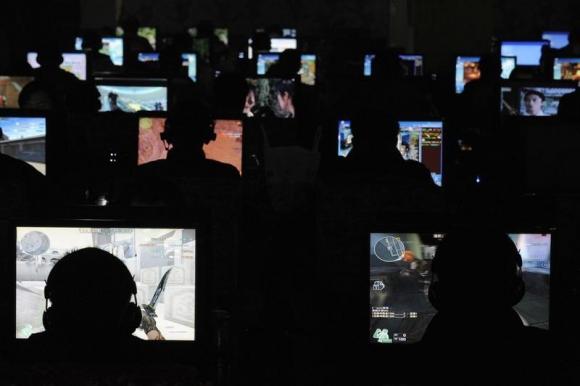China’s Cyberczar Lu Wei and VPN-toting Great Firewall mastermind Fang Binxing were in Moscow on Wednesday to speak at the Russia-China ICT Development & Security Forum at the 7th International Safe Internet Forum. As The Financial Times’ Max Seddon describes, the event is led by Konstantin Malofeev, “part of a hawkish circle of devout Russian Orthodox Christians that has grown in influence during Mr Putin’s third term.” Malofeev, a university friend of Lu Wei’s Russian counterpart Igor Schegolev, founded the Safe Internet League with apparent Kremlin backing to enforce Orthodox morality on Russian websites, which comprise “probably one of the world’s dirtiest internets.” Its volunteers flag content such as pornography, drug use, and homosexuality for deletion by official censors, but the League is also suspected of helping to suppress political dissent. It has drawn up plans for a national Internet whitelist, from which parents could only opt out by consenting to their children’s potential exposure to “‘pornography, drugs, paedophiles,’—scary words.”
Part of the forum’s goal is to harness Chinese expertise in internet management to gain further control over Russia’s internet, including foreign sites accessible there. This includes demanding that Russian users’ data be hosted within the country, and embracing China’s “internet sovereignty” model as a bulwark against the existing American online “hegemony.” Seddon, together with The Economist’s Noah Sneider and author Andrei Soldatov, tweeted from the meeting:
China's Internet czar: "Freedom is not a right, but a responsibility. Unlimited freedom can lead to terrorism." pic.twitter.com/Olp9LR2usp
— max seddon (@maxseddon) April 27, 2016
China's Internet rhetoric sounds just like Russia's. Lu Wei says Western media are waging "information war" against both
— max seddon (@maxseddon) April 27, 2016
Google and Facebook may not be transferring their servers to Russia, but Chinese companies are, says Russia's Internet censor. Progress!
— max seddon (@maxseddon) April 27, 2016
Fang Binxing, father of China's Great Firewall, shares his "theory of cyber sovereignty." pic.twitter.com/3B4s8gNXBA
— max seddon (@maxseddon) April 27, 2016
https://twitter.com/NoahSneider/status/725247961601609728
"If borders exist, they exist in cyberspace too," says Fang Binxing pic.twitter.com/6OkNKo4Oxl
— max seddon (@maxseddon) April 27, 2016
https://twitter.com/NoahSneider/status/725248806380572672
Fang BinXing: "the Internet is governed by American hosting companies"
— Andrei Soldatov (@AndreiSoldatov) April 27, 2016
Fang BinXing: "US government directly controls American internet companies." That should please Schegolev.
— Andrei Soldatov (@AndreiSoldatov) April 27, 2016
Fang BinXing supports the idea of data localisation. "Other countries have no right to interfere in internal affairs".
— Andrei Soldatov (@AndreiSoldatov) April 27, 2016
https://twitter.com/NoahSneider/status/725251705521201152
Now Malofeev compares the Internet with cosmos – the USSR launched Sputnik but didn't attempt to govern cosmos why the US govern the Net?
— Andrei Soldatov (@AndreiSoldatov) April 27, 2016
Malofeyev calls to learn from the Chinese in censoring the Internet
— Andrei Soldatov (@AndreiSoldatov) April 27, 2016
Denis Davydov, Head of Safe Internet League said the US hegemony on the Internet "will be shaken" after today's Russia-China forum. Well…
— Andrei Soldatov (@AndreiSoldatov) April 27, 2016
Smiling Chinese Internet censors take pix at a forum in Moscow, where they came to share their superior knowledge. pic.twitter.com/rXXHb0zjgY
— Ivan Nechepurenko (@INechepurenko) April 27, 2016
The expansion of a Chinese model of internet governance has long loomed, with Russia at the forefront. At China US Focus, China Copyright and Media’s Rogier Creemers discusses the characteristics and international appeal of such a model, built on the “foundational norm” of national sovereignty. He notes Xi Jinping’s emphasis on “each country’s rights to choose its online development path, its network management model, its public Internet policies and equal participation in international cyberspace governance.” While this state-dominated approach may be directly at odds with liberal Western inclinations, Creemers argues, it must now be taken seriously.
[… A] – for many uncomfortable – truth is that China now has the world’s largest online population, is a major producer of IT hardware and, increasingly, software, and is rapidly developing world-leading businesses of its own. The [World Internet Conference] also demonstrated that China is rapidly building a regional coalition of like-minded countries. This is part of a broader plan in which the leadership pursues an increasingly significant role on the global Internet governance stage. Whatever one might think of China’s stance, it seems inevitable that the country is going to play an increasingly significant role on the Internet stage, and that some form of engagement will be required if the integrity of the global Internet is to be preserved.
As such, rather than dismissing both its attitude to global Internet governance as well as domestic Internet control out of hand, it is perhaps useful to consider the roots of China’s position, as well as why this position might be attractive to other governments. The conflict between the “open Internet” model proposed by the United States, the United Kingdom and other Western nations and China’s sovereignty-based approach reflects both an opposing conception about the international order and the role of liberal values therein, as well as of the proper function of the state in domestic and global governance.
[…] Liberal-democratic notions, accompanied by a strong anti-government bias, have been tremendously influential in shaping the belief systems of Internet governance stakeholders hitherto. Such notions of legal and legitimate limitations to state power are absent in the Chinese context, where the historical experience of successive governments has been that a strong, capable state is necessary to ensure national power and prosperity. In other words, where it is often inconceivable that the state plays a dominant role in regulating cyberspace in Western views, in Chinese eyes, it is equally inconceivable that it doesn’t. [Source]








